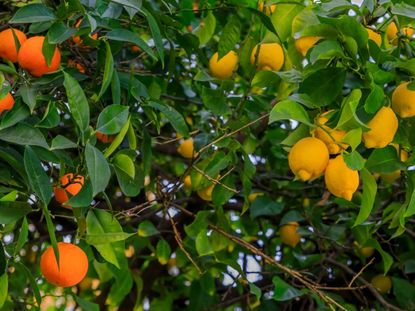Selecting suitable fruit trees is crucial when establishing your orchard or enhancing your garden with fruitful delights. Buying from a nursery can be a rewarding experience, but it requires careful consideration. This buyer’s guide will walk you through essential factors to remember when selecting fruit trees for sale at a nursery.
- Climate Considerations:
The first and foremost consideration is your local climate. Different fruit trees thrive in various temperature zones, so choosing trees that are well-suited for your specific region is essential. Research the climate requirements of each fruit tree species to ensure they can withstand the temperature extremes and conditions in your area.
- Soil Quality:
Understanding the soil composition of your planting site is another crucial factor. Fruit trees have specific soil preferences, and selecting trees that match your soil type will promote healthier growth and fruit production. Before purchasing, test the soil pH and composition or consult nursery experts to determine which fruit trees best suit your soil.
- Tree Size and Spacing:
Consider the available space in your garden or orchard before choosing fruit trees. Some trees can grow quite large, while others are more compact. Understanding the space requirements and the mature size of each tree is essential to prevent overcrowding and ensure proper growth. Consider the spacing recommendations between trees for optimal sunlight exposure and air circulation.
- Disease Resistance:
Choose fruit trees that exhibit resistance to common diseases in your region to promote a thriving orchard. Nurseries often provide information about the disease resistance of their trees, helping you make informed decisions. Investing in disease-resistant varieties can save you time and effort in the long run, as these trees are less susceptible to infections and require less maintenance.
- Pollination Requirements:
Some fruit trees require cross-pollination to produce fruit, while others are self-pollinating. Understanding the pollination requirements of the fruit trees you plan to purchase is crucial for ensuring a bountiful harvest if a tree requires cross-pollination and plant-compatible varieties to facilitate the process.
Selecting fruit trees at a nursery is an exciting step towards creating your orchard or enhancing your garden. By considering some important factors such as climate, soil quality, tree size, disease resistance, and pollination requirements, you can increase the longevity of your fruit-bearing trees. Happy planting, and may your orchard be filled with the fruitful delights you’ve always dreamed of!










